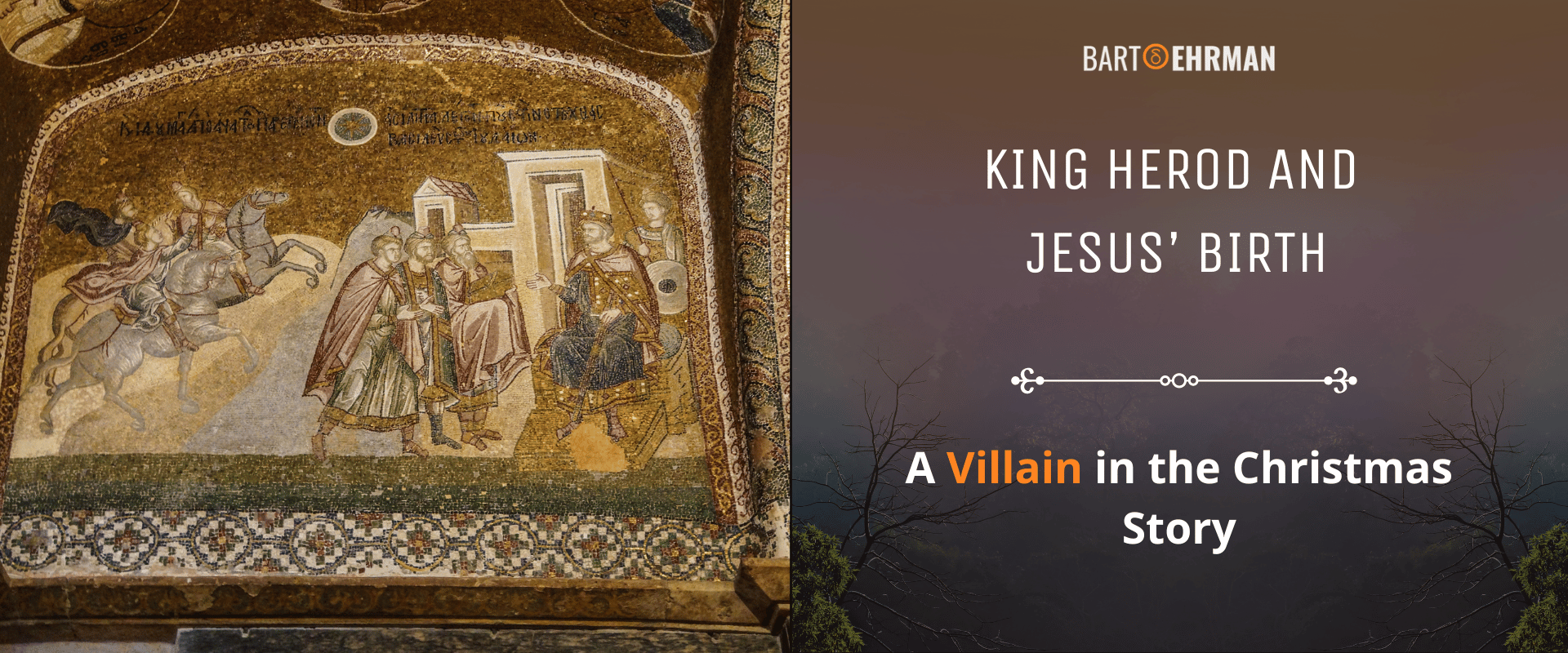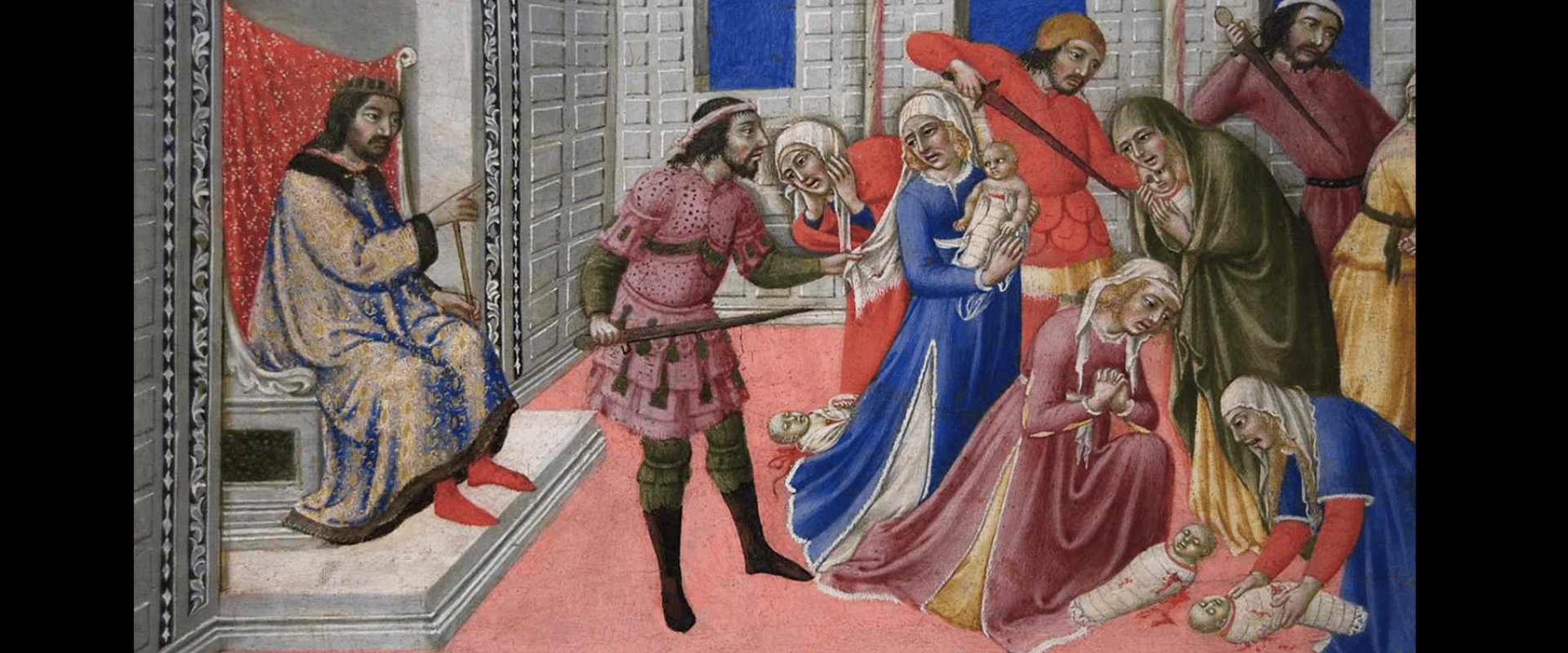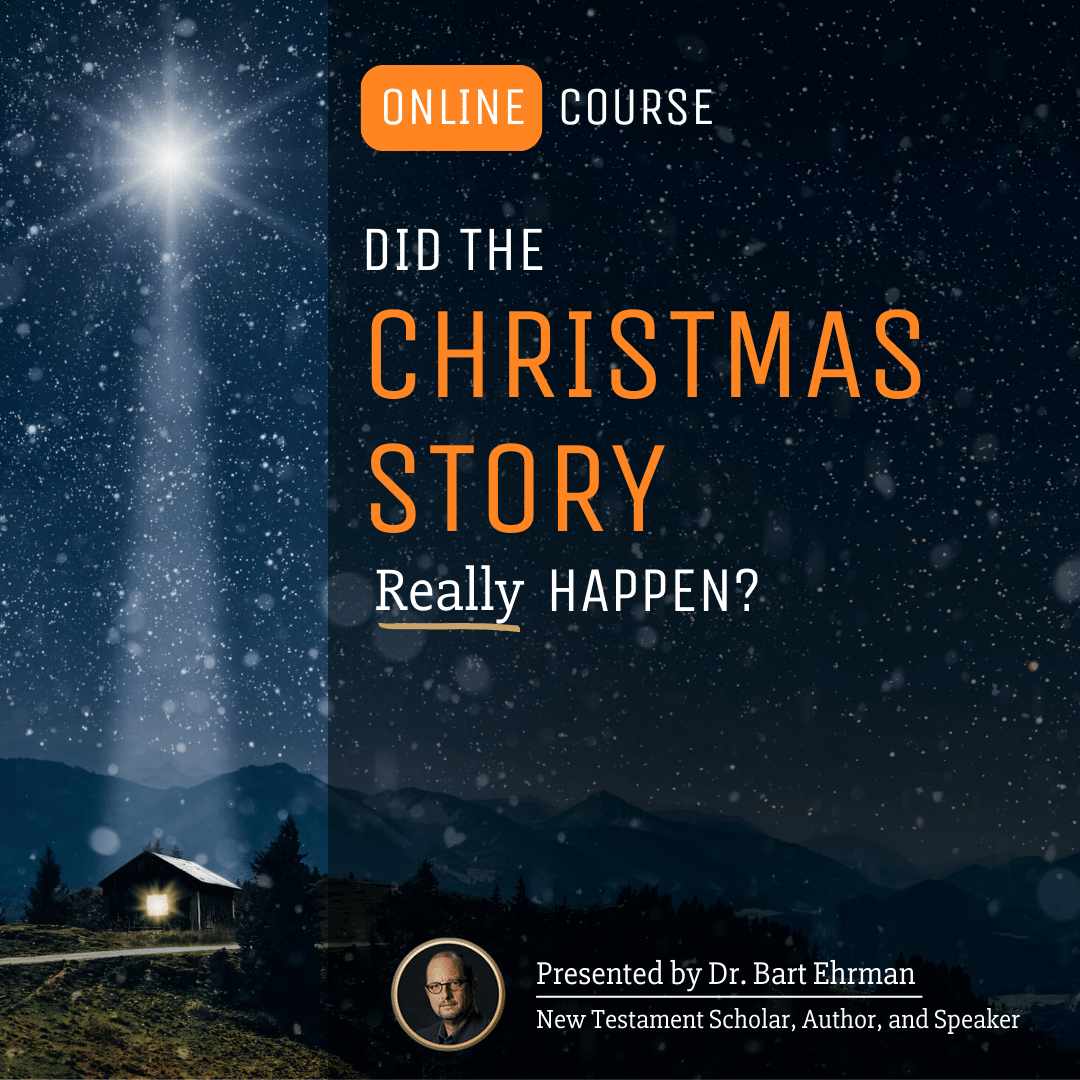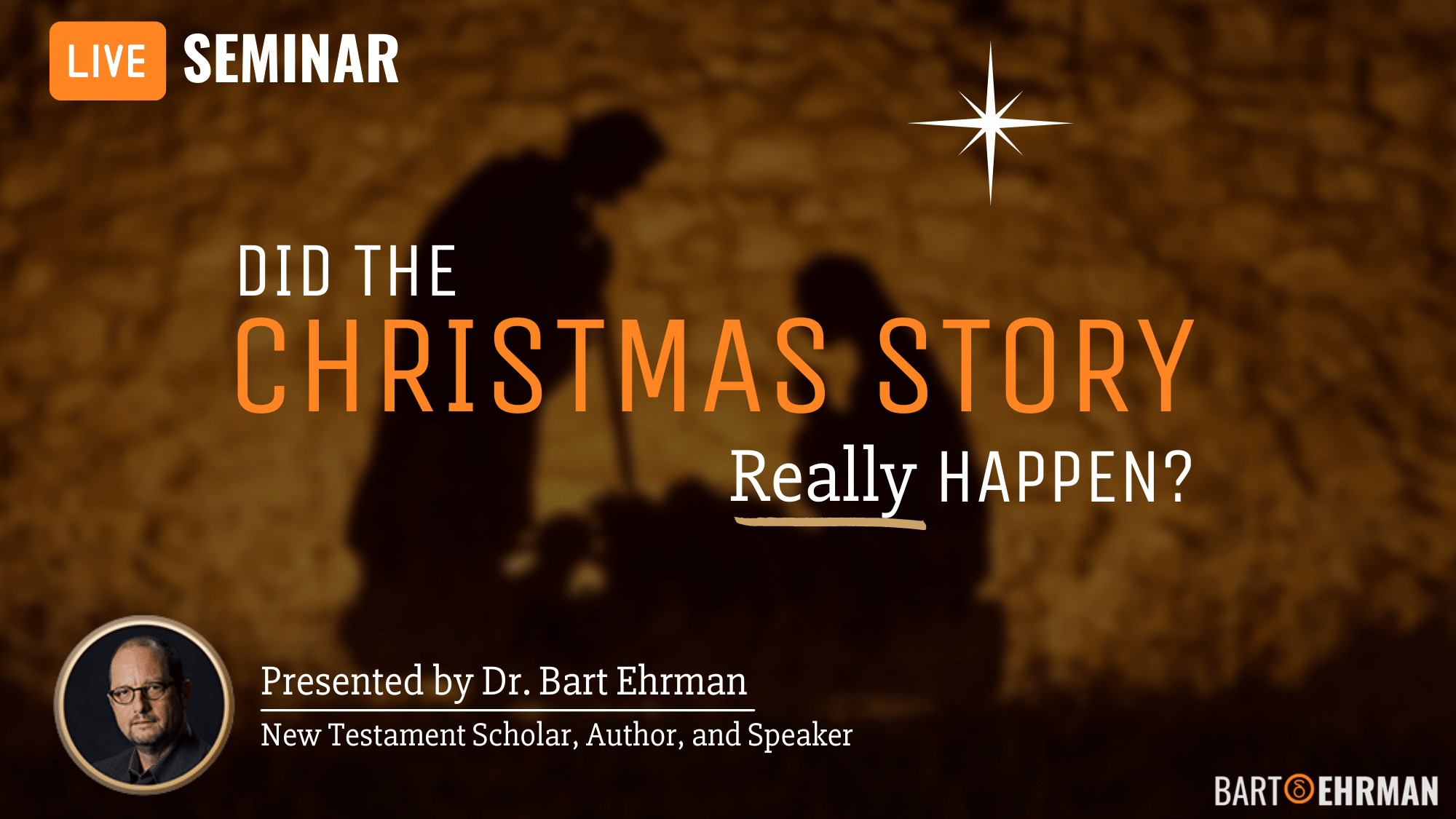King Herod and Jesus’ Birth: A Villain in the Christmas Story

Written by Joshua Schachterle, Ph.D
Author | Professor | Scholar
Author | Professor | BE Contributor
Verified! See our editorial guidelines
Verified! See our guidelines
Edited by Laura Robinson, Ph.D.
Date written: December 19th, 2023
Disclaimer: The views and opinions expressed in this article belong to the author and do not necessarily match my own. - Dr. Bart D. Ehrman
Where did the story of King Herod and Jesus’ birth come from? Most of the stories around the nativity are heartwarming, but in the Gospel of Matthew’s version, there is also a villain involved. Who is Herod in the Bible? And since there are several Herods mentioned in the New Testament, which Herod is the biblical villain in Matthew’s Christmas story? I’ll explore those questions in this article.

Which Herod Ruled When Jesus Was Born?
There are six Herods mentioned in the Bible, all from the same royal family. Some of their ruling periods overlapped because they ruled different territories.
Herod the Great (ruled 37-4 BCE)
Herod Archelaus (ruled 4 BCE- 6 CE)
Herod Antipas (ruled 4 BCE-39 CE)
Herod Philip the Tetrarch (ruled 4 BCE- 34 CE)
Herod Agrippa I (ruled 37-44 CE)
Herod Agrippa II (ruled from the 50s CE a long time after the Romans destroyed Jerusalem and the Temple; died around 93 CE)
Since most scholars agree that Jesus was born around 6 BCE, the villain of the Christmas story in Matthew is Herod the Great. What do we know about this king?
Historical Information on Herod the Great
Herod the Great was born around 72 BCE in the region of Idumea, just south of Judea. Herod’s father was from the land of Edom. Nevertheless, his ancestors had converted to the Jewish religion and Herod himself was raised as a Jew.
When Herod was a child, Rome conquered Judea, using Jewish client kings to rule on their behalf. Thanks to his father’s connection with the Roman dictator Julius Caesar, Herod quickly rose up the ranks of government, ultimately becoming Rome’s client king in Judea. Herod may have been the king, but he had to follow Rome’s orders.
Herod the Great was known principally for two things: First, his brutality (which makes him a good villain). In fact, he executed several members of his own family, including his wife. Second, his ambitious building projects, including rebuilding and expanding the massive Jerusalem Temple. This is the basis for his being called “great.”
While his commitment to the Jewish faith was often questioned by Jews in his time who resented his submission to the Romans, he definitely considered himself a Jewish king. He died in 4 BCE.
To understand how Matthew’s story makes Herod the bad guy in his birth narrative, however, we have to start with the magi, the wise men.
Who Were the Magi?
While many English versions of the Bible say that “wise men from the east” visited the infant Jesus, the original word in Greek was magoi or magi in English. The magi were a priestly class in ancient Persia who were also astrologers. Astrology, the belief that the positions and movements of the heavenly bodies can influence and predict human life, was a huge part of ancient thinking. Those who could interpret these correctly, according to ancient standards, could have enormous power and influence. The Magi were revered in the ancient world as wise men.
Here is what Matthew 2:2-8 says about the arrival of the magi:
2 In the time of King Herod, after Jesus was born in Bethlehem of Judea, magi from the east came to Jerusalem, 2 asking, “Where is the child who has been born king of the Jews? For we observed his star in the east and have come to pay him homage.” 3 When King Herod heard this, he was frightened, and all Jerusalem with him, 4 and calling together all the chief priests and scribes of the people, he inquired of them where the Messiah was to be born. 5 They told him, “In Bethlehem of Judea, for so it has been written by the prophet:
6 ‘And you, Bethlehem, in the land of Judah,
are by no means least among the rulers of Judah,
for from you shall come a ruler
who is to shepherd[d] my people Israel.’ ”
7 Then Herod secretly called for the magi and learned from them the exact time when the star had appeared. 8 Then he sent them to Bethlehem, saying, “Go and search diligently for the child, and when you have found him, bring me word so that I may also go and pay him homage.”
As we know, the magi, as astrologers, follow the guiding star and find Jesus, honoring him with gifts befitting a king. But when they’re about to leave to return to their own country, they have a dream forewarning them that Herod wants to find and kill Jesus. Accordingly, they skip the final visit to Herod and go home by a different way. The results of this are tragic:
16 When Herod saw that he had been tricked by the magi, he was infuriated, and he sent and killed all the children in and around Bethlehem who were two years old or under, according to the time that he had learned from the magi.
This brutal story of murder is sometimes known as the massacre of the innocents or the slaughter of the innocents. But is it a historical event?
Did This Massacre of the Innocents Really Happen?
Most scholars believe that this story is Matthew’s invention, meant to correspond to a similar event in the life of Moses from Exodus when Pharaoh kills all Israelite babies but the infant Moses escapes.
A later version of this story of Moses, popular when the author of Matthew was writing his Gospel, adds a detail to the Exodus story: one of Pharaoh’s scribes announces to him that one of the Israelites about to be born will take Pharaoh’s power if allowed to grow and mature. It then says that Pharaoh, “alarmed by the threat… ordered that every male child born to the Israelites should be destroyed.”
For Matthew, Jesus is the new Moses, a new lawgiver as we see during his discourse on the Torah in the Sermon on the Mount. Moreover, Herod kills the infants for precisely the same reason as Pharaoh in the story: to preserve his power.
Despite the popularity of this Christmas story, there is no historical evidence outside of Matthew that the Massacre of the Innocents ever happened. None of the other canonical Gospels mentions it, which would be strange if such a massive tragedy had actually happened. It’s also not mentioned in any of our other historical sources.

Why Herod the Great Made the Perfect Villain
Herod, as I mentioned earlier, was well-known as a vicious dictator. Some of his many cruelties included using spies to discover what his people thought of him and then eliminating his detractors by force. He also heavily taxed the people of Judea in order to finance his building projects, sending many who were already poor into destitution.
With his wife Mariamne, he was susceptible to violent jealousy. Because of this, he ultimately killed Mariamne, her two sons, her brother, her grandfather, and her mother.
Even though Matthew was written decades after Herod’s death, the stories of his brutality were certainly passed down as history as we know, for example, from the writings of 1st-century Jewish historian Josephus. In short, for the author of Matthew, Herod the Great was the perfect villain for his invented tale.
Could Herod have committed such a horrible act as the Massacre of the Innocents? It was certainly within the scope of his character, given his jealous and murderous disposition. Did he commit such an act? The answer is almost certainly no.
Conclusion: Who Was the Biblical Villain in the Christmas Story?
The author of the Gospel of Matthew chose Herod to be the villain in his story of Jesus’ birth for good reasons.
First, it was known that Herod the Great had been king when Jesus was born. This also agrees with the scholarly consensus that Jesus was born around 6 CE during the last years of Herod’s reign.
Second, Herod had a well-deserved reputation for cruelty. One could hardly choose a better villain for Matthew’s story than a king who killed members of his own family and taxed his people into penury for the sake of his own ambitions.
Despite all this, though, there is no historical evidence outside of the Gospel of Matthew that the Massacre of the Innocents ever happened. It was a Matthean invention, meant to show how Jesus was the new Moses.


